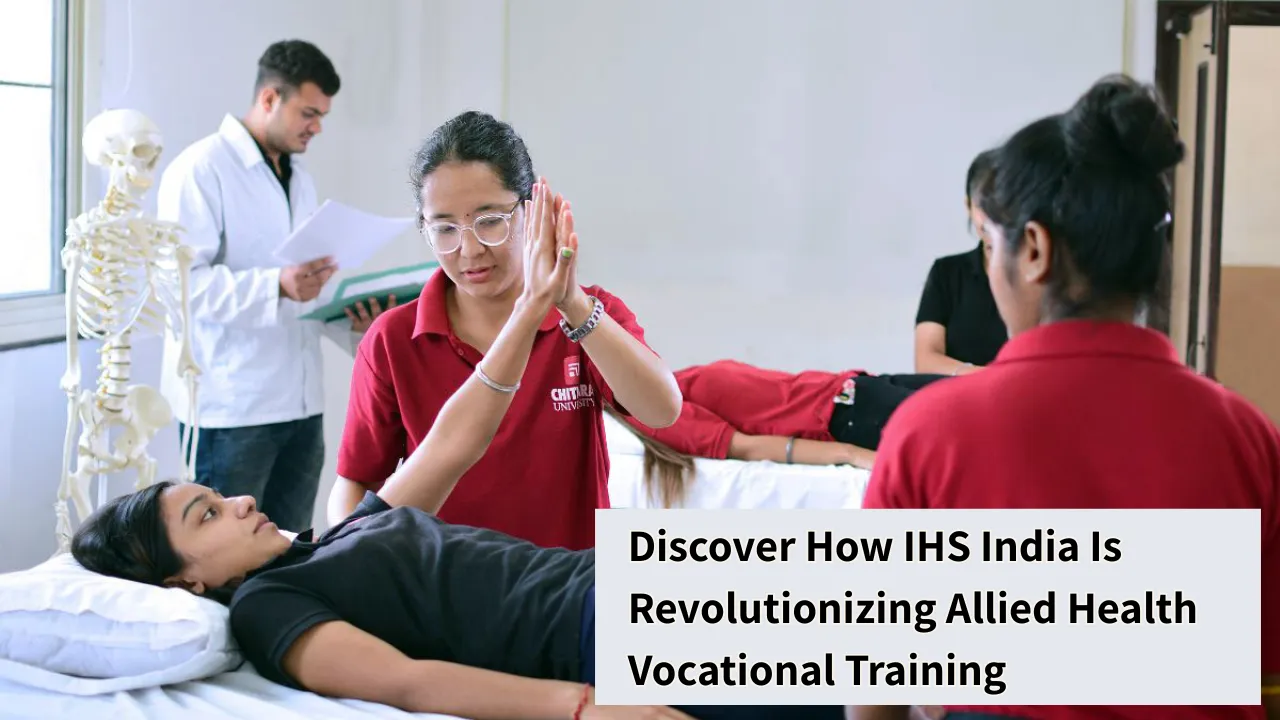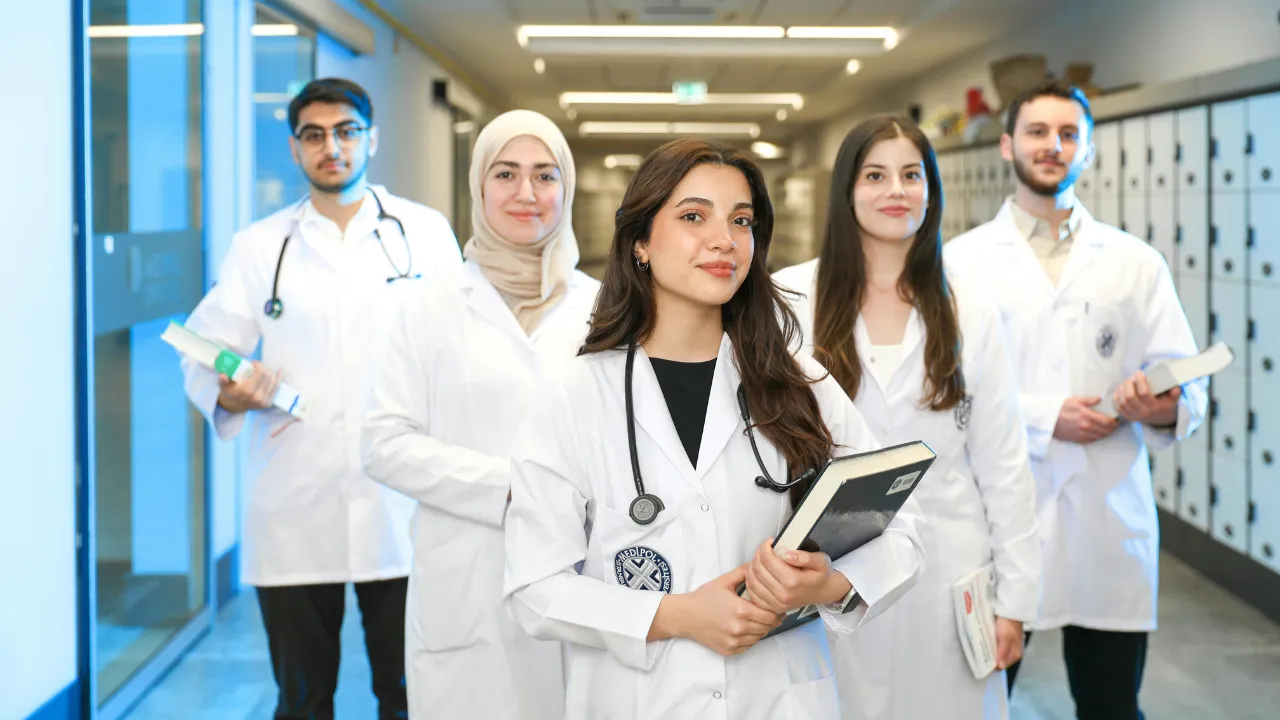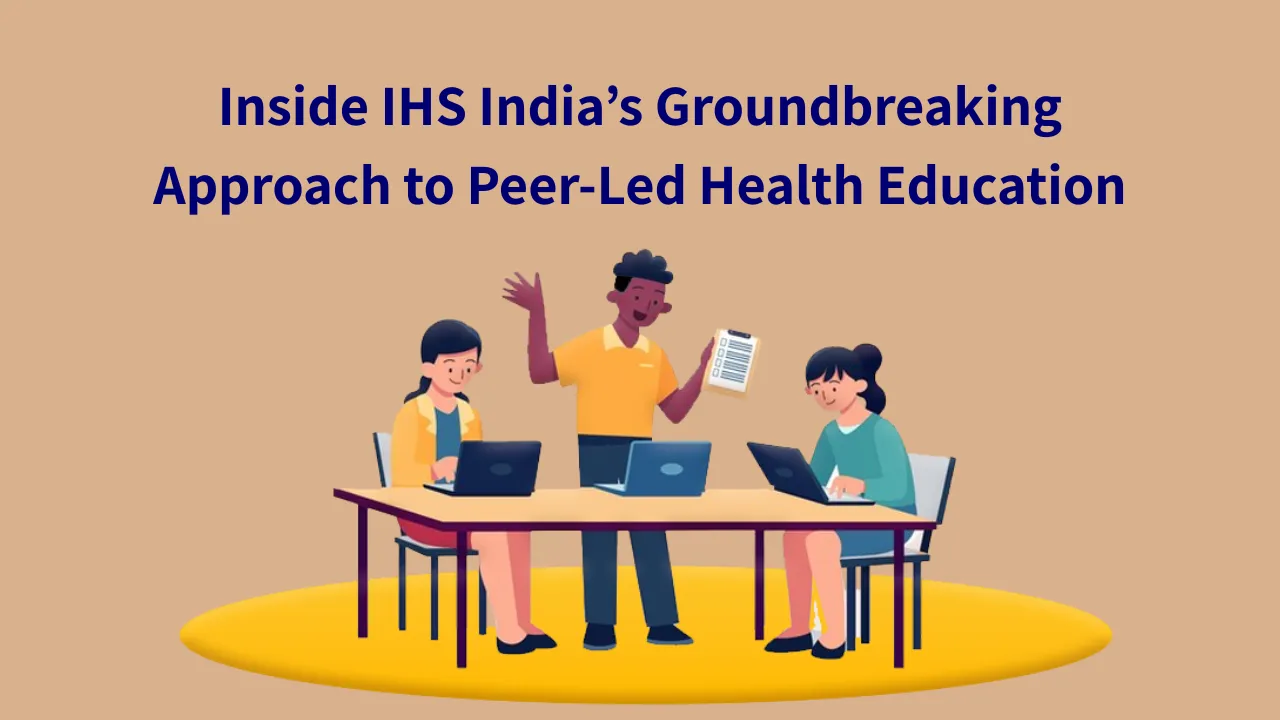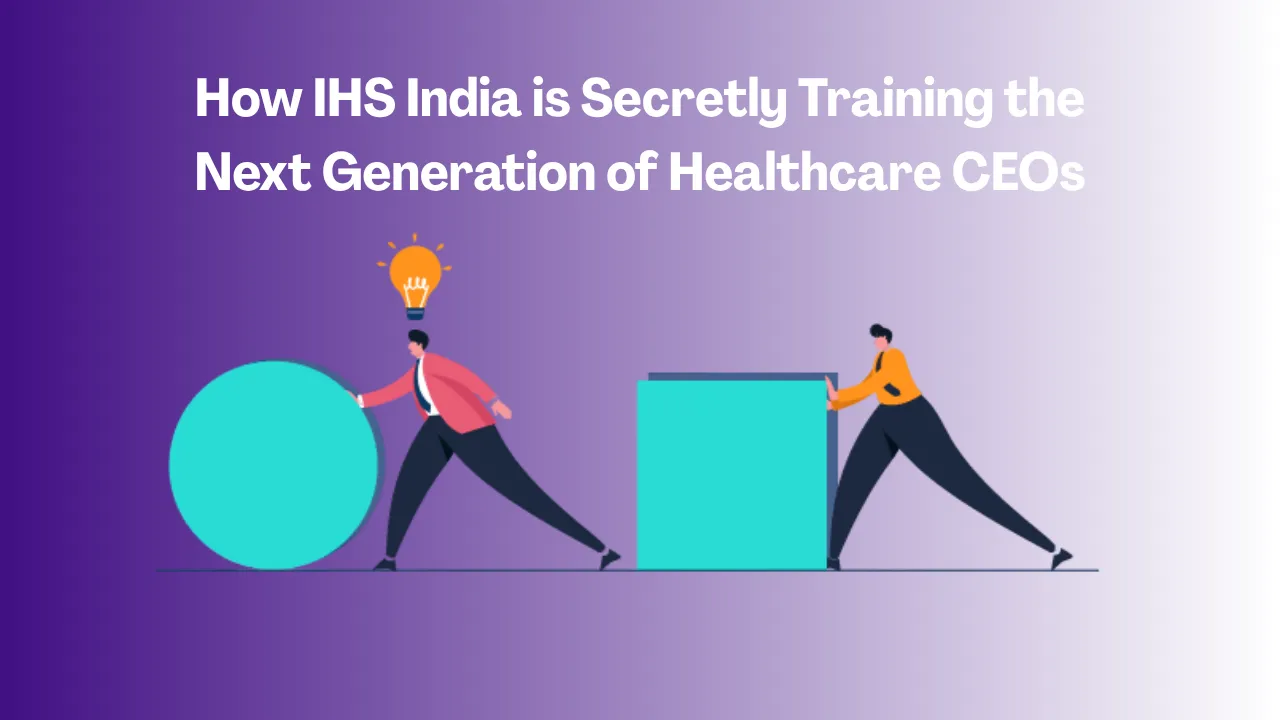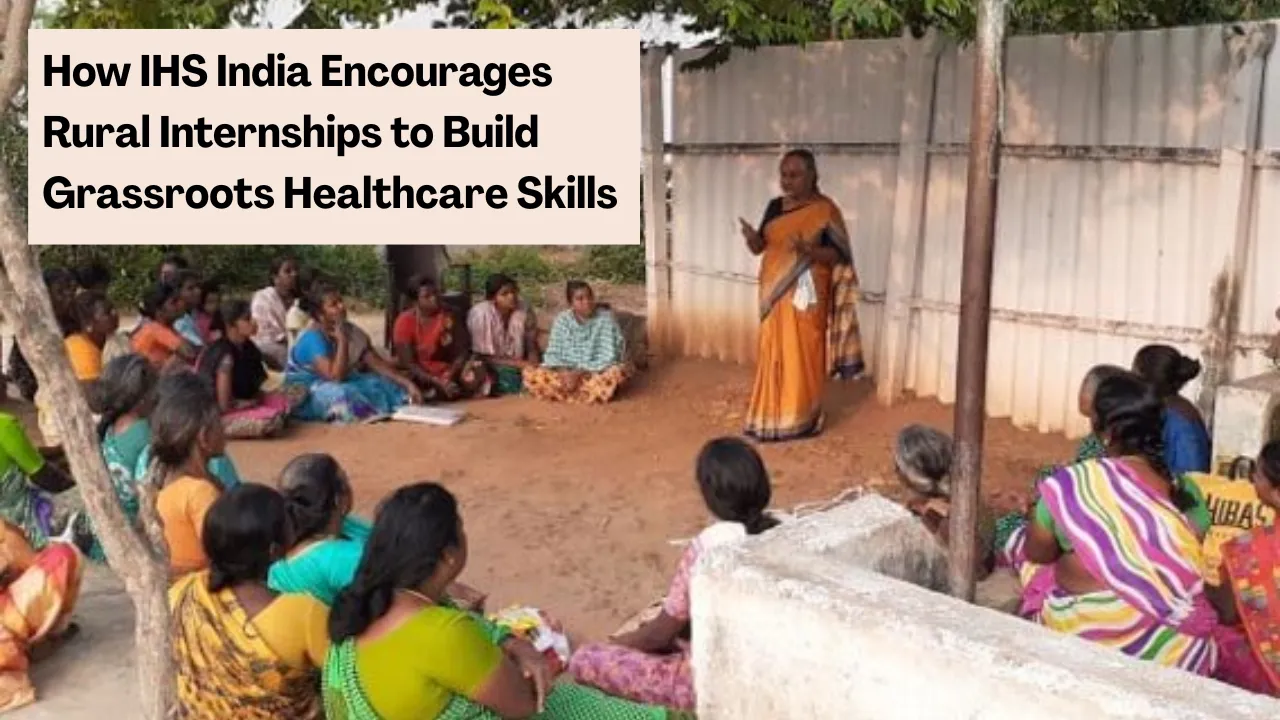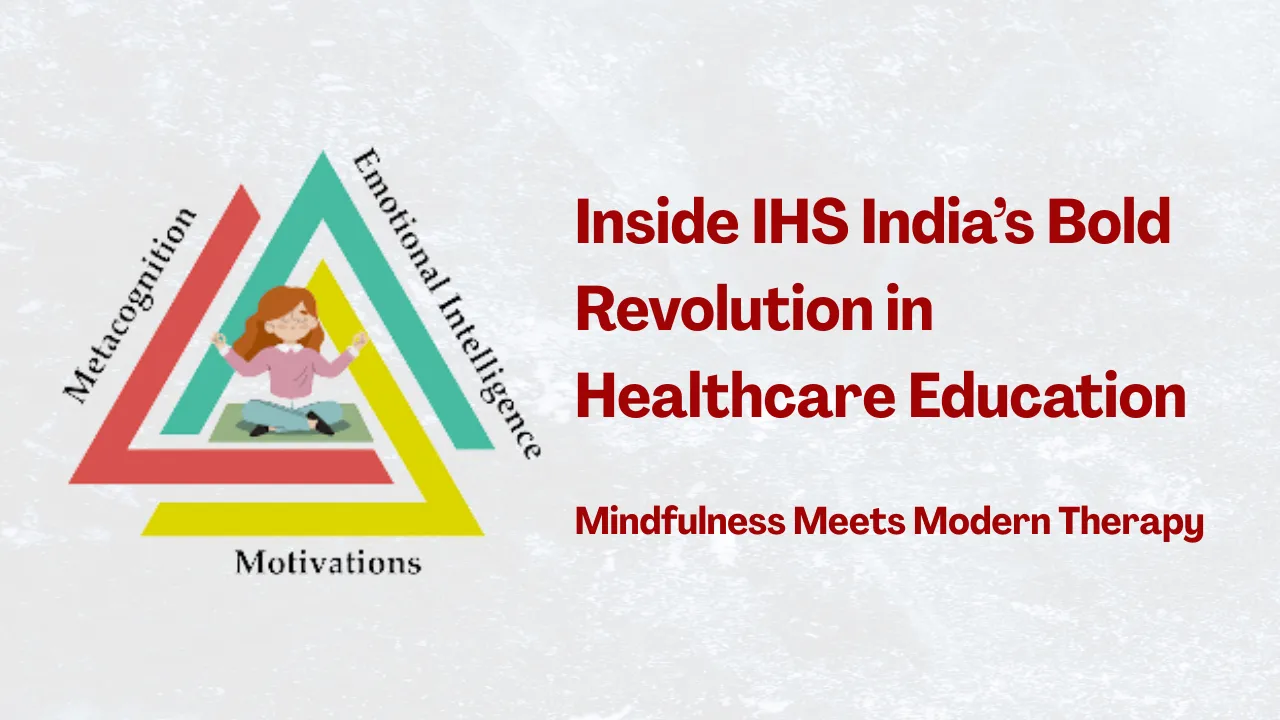IHS India: When degrees alone won’t cut it in today’s competitive healthcare job market, practical skills become the key to success. IHS India (Institute of Health Sciences) is stepping into that gap by offering vocational training in allied health that centers around real-world readiness. With modern labs, hospital tie-ups, and a curriculum shaped by industry needs, IHS India is ensuring students aren’t just learning—they’re job-ready.
If you’re exploring options in vocational training for allied health, IHS India delivers a powerful mix of classroom instruction and hands-on experience. Inside these courses, students get classic education bolstered by on-the-job training in top hospitals, ensuring they enter the workforce confidently, skillfully, and immediately employable.
IHS India: Bridging the Gap Between Education and Employment
IHS India has emerged as a frontrunner in aligning healthcare vocational education with real-world demand. The focus keyword for students and parents is “IHS India vocational training in allied health,” and the institute lives up to that promise by offering end-to-end career development—from registration to placement.
Vocational training isn’t just about earning a certificate. It’s about acquiring industry-validated knowledge that leads to healthcare jobs in India. From medical lab technology and radiology technician courses to physiotherapy training, IHS India ensures its programs cover high-demand roles across diagnostic labs, clinics, hospitals, and wellness centers.
Overview Table: IHS India Allied Health Programs
| Program | Duration | Training Mode | Job Role | Industry Tie-up |
| Medical Lab Technology | 1–2 years | Theory + Practical labs | Lab Technician, Clinical Lab Tech | Partner hospitals, diagnostic labs |
| Radiology & Imaging Technician | 1–1.5 years | Classroom + Demo sessions | X-ray Tech, Imaging Assistant | Multispecialty hospitals |
| Operation Theatre Technology | 1 year | Simulation + Hospital OJT | OT Assistant | Active hospital OT departments |
| Physiotherapy Technician | 1–1.5 years | Workshop + Clinic Interns | Physiotherapy Aide | Physio clinics, rehab centers |
| Emergency & Critical Care Tech | 6–12 months | Classroom + Emergency Drill | Emergency Medical Technician (EMT) | Trauma centers, ambulance services |
| Dialysis Technician | 6–12 months | Lab + Hospital Rotations | Dialysis Tech | Dialysis centers, nephrology units |
Vocational Training with a Purpose
Traditional academic programs often stop short of preparing students for actual job roles. IHS India changes that approach by focusing on vocational healthcare training that’s deeply tied to career outcomes. With courses like medical laboratory technician training, students spend equal time in theory lessons and hands-on labs. That means you’re not just studying a microscope—you’re using it daily.
This functional learning extends to radiology and imaging courses, where fiber-optic scanners and X-rays become tools you handle with confidence. The goal is simple: by the end of your program, you’re already operating in a real-world setting.
Aligning with Industry Needs
One of IHS India’s biggest assets is its strong industry partnerships. The institute regularly consults with senior healthcare professionals to update course content. Facilities like medical diagnostic labs and multispecialty hospitals serve as training grounds, offering students internships and rotations.
This close alignment means graduates from IHS India aren’t “just certified”—they’re already familiar with workplace protocols, patient interaction, and time management. For hospital administrators hiring allied health staff, that’s a game-changer.
Employment-First Programs
IHS India maintains a clear mantra: vocational courses must lead to employment. That mindset shows in every touchpoint—from curriculum design to career counseling. Exclusive job fairs, live hiring events, and resume workshops are built into every program.
In fact, many IHS India students land jobs before they complete their certifications. Those pursuing diagnostic medical roles often receive offers from partner clinics during their final semester, thanks to established placement pipelines.
Accessibility and Affordability
Vocational training is only valuable if it’s available. IHS India tackles this barrier by offering merit-based scholarships and flexible payment plans. Most programs qualify for government-recognized certifications, ensuring students receive credentials that matter in the job market.
Location-wise, IHS India is present in tier-2 and tier-3 cities to serve underserved communities. This broad access helps rural or budget-conscious students access quality allied health education without relocating.
Future-Ready Training
Healthcare is evolving rapidly, and the tools you learn today may be obsolete tomorrow. IHS India avoids this pitfall by continuously updating its labs and integrating technology trends—like digital radiography, AI diagnostics, and electronic health record systems—into its teaching.
Students also gain early exposure to telehealth tools and remote patient monitoring systems, preparing them for the digital future of healthcare.
Real-World Impact
Take the story of Ananya, a Medical Lab Technology student from a small town. By her final semester, she’d already completed a 6-week internship at a leading diagnostic lab. After graduation, she received a job offer to continue as a full-time trainee technician with salary and benefits.
This is the kind of placement track IHS delivers—where job-ready skills meet actual job opportunities.
How to Get Started at IHS India
- Choose a Program: Decide based on your interest—labs, imaging, dialysis, or emergency care.
- Meet the Entry Criteria: Most courses require a 10+2 science background; diploma holders have additional options.
- Apply Online: Submit documents, academic records, and entry assessments.
- Attend Orientation: Learn about curriculum structure, clinical placements, and career support.
- Start Training & Interning: Dive into labs, simulations, and hospital rotations.
- Graduate & Get Placed: Take advantage of placement drives and job fairs.
FAQs
1. How long do allied health vocational courses at IHS India take to complete?
Courses range from 6 months for dialysis and emergency care to 2 years for advanced medical lab and OT tech programs.
2. Does IHS India provide placement support after the course?
Absolutely. All students get career counseling, resume workshops, real-time job placements, and access to partnered employers.
3. Are the certifications government-recognized?
Yes. All programs are accredited, and graduates receive industry-accepted diplomas.
4. Can I join IHS India without a science background?
Most advanced courses require 10+2 science, but some short-term certification modules are available for general demographic backgrounds.
5. Are scholarships available for low-income students?
Yes. IHS India offers merit-based and need-based scholarships along with installment-friendly fee structures to support students from all economic backgrounds.
Conclusion
IHS India isn’t just changing the landscape of vocational training in allied health—it’s rebuilding it for relevance, opportunity, and purpose. By blending hands-on education, industry-aligned internships, and career-first support, IHS ensures that students don’t just study—they launch meaningful careers. If you’re exploring allied health training in India, this is a path worth considering. With strong job placements, accessible programs, and future-focused training, IHS India offers a winning route from classroom to career.
